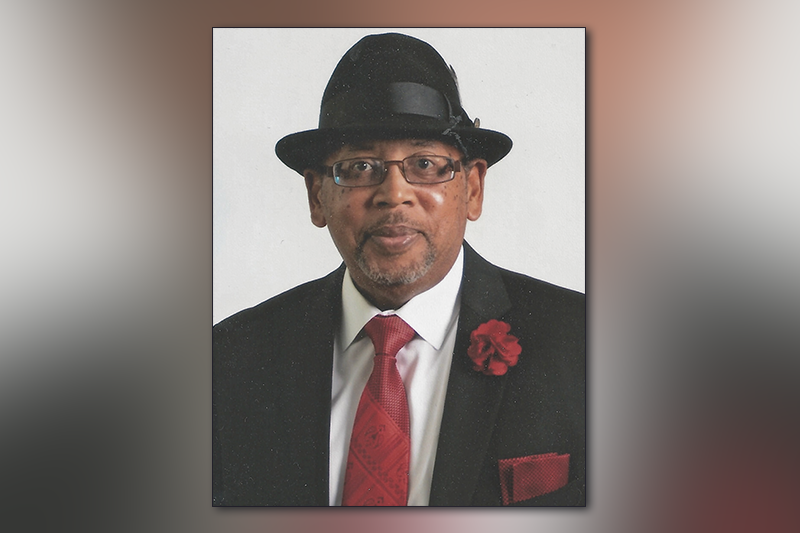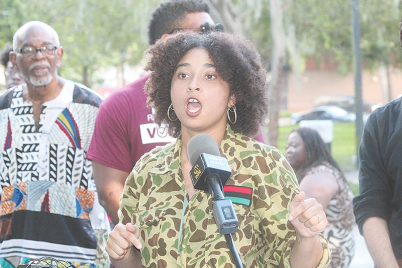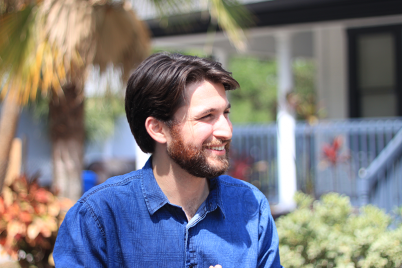Dear Editor:
Once again, the great controversy and debate over Florida’s “stand your ground” law has gained national attention with the recent shooting death of Markeis McGlockton in a convenience store parking lot in Clearwater. McGlockton was shot by Michael Drejka who has now been arrested and charged with manslaughter. His defense is the “stand your ground” law.
In 2012, the killing of Trayvon Martin put the “stand your ground” defense in the spotlight in Sanford, Fla. Today in Clearwater, right in our backyards, we are faced again with a law that many agree needs to be repealed or fixed. There are supporters and opposers on both sides of the law.
The law, according to civil rights attorney Benjamin Crump who represents the McGlockton family, “is a racist law that gives white people a license to kill unarmed people of color.” He explained that it disproportionately protects white shooters because “when black people make a ‘stand your ground’ argument, it’s from inside a jail cell.”
How long will this controversy continue? How are we as people of color related to it? What is our responsibility? What will be its ending? These are all questions that we need to think about and act upon.
In addition to the “stand your ground” law controversy, there is another debate that is a “sister” to “stand your ground,” and that is body cameras. There has been much controversy over the use of body cams in the state of Florida—who should wear one, what is done with the footage and how long it needs to be saved. In Florida, the police are not required to wear body cams, as it is left up to each district or agency as to whether or not they want their police officers to wear them.
Case in point, for the past four years there has been an ongoing controversy in St. Petersburg regarding the use of body cams. On Nov. 6, 2014, the National Christian League of Councils (NCLC) spearheaded the initial campaign for body cameras.
The NCLC led a delegation of ministers, civic and labor leaders to lobby before the city council the merits of making body cameras law in St. Pete. The approval of body cam implementation was opposed by Police Chief Anthony Holloway and Mayor Rick Kriseman, who both appealed to council to allow Holloway to study and test the use of the equipment and submit the results and a projected budget the following Jan.
For two years, the NCLC and the African-American community never witnessed any communication or notifications from Holloway and city council as to whether any testing was ever done. On July 8, 2016, the NCLC requested to come before city council a second time to make body cameras law, but then-Chairman Dudley never responded or placed body cams on the agenda.
On March 9 of this year, following the multiple tasing of Lamont Stephens by St. Pete Police at the Shell Service Station on 18th Avenue South, the NCLC along with the American Civil Liberties Union (ACLU) re-launched a campaign petitioning city council, Kriseman and Holloway to adopt and approve the use of body cameras, which needs to be included in their budget for Fiscal year 2019.
A few days ago, Holloway announced that he would be trying out new body cameras for the next 30 days as a part of a pilot program. He would then advise the mayor of his findings. How much more testing and studying time does Holloway need before he can make a decision?
According to an article in the Tampa Bay Times, Howard Simon, executive director of the Florida Chapter of the ACLU said, “It seems absurd that it would take four years to study something that police departments all across the country have been able to implement on a shorter timetable.”
Both NCLC and the executive director of the ACLU think it is time for Holloway to decide.
City council is now in the midst of their budgetary season. Any more testing by Holloway will simply delay the issue of body cams coming before council until after the 2019 budget has been finalized.
The fact of the matter is that for the last four years, Holloway has been studying and testing body cams. In a Jan. 2017 CNBC article, he discussed testing gun cameras and body cameras.
“We love that function because it can send a signal to the sergeant to let them know that he or she just pulled their weapon and it also tells you exactly where they are so you can start sending units to the location,” stated Holloway.
The article goes on to say that, “Holloway’s training unit is evaluating the devices along with body-worn cameras,” noting that Holloway preferred gun cameras.
Unlike the body camera, the camera on a gun is mounted below the barrel of a handgun and starts recording only after the weapon is removed from the officer’s holster and won’t capture what led to officers drawing their guns or other interactions with the public.
Civil rights groups say gun cameras should not be used instead of body cameras. What do you think? Which would you prefer during a confrontation with the police? A body camera that will record the interaction from beginning to end or the gun camera that will record what it’s pointing to or shooting at?
According to information from the Florida Department of Law Enforcement, there are 22 sheriff’s offices and 102 police departments that use body cameras. St. Petersburg and Clearwater are not included on that list, nor are Pinellas and Hernando Counties.
Hillsborough, Pinellas and Polk County Sheriffs are against using body-worn cameras on deputies. Temple Terrace, Gulfport, Seminole, Winter Haven and Pasco County are all nearby cities using body cams. But what about us here in St. Petersburg and Clearwater?
Let us not forget the beating of Stephens by St. Pete police that was recorded on a bystander’s cell phone or the cell phone recording of St. Petersburg Police Officer Michael Naples who recently resigned for using the N-word while investigating a dispute.
We must realize that what is happening to African Americans in our communities is not normal. The unarmed killing of black men and women is not normal. The police brutality against people of color is not normal. The police being called on black people who are just going about their daily activities are not normal and has gotten out of hand.
In the past few months, it seems like every week we hear about a white person calling the police on black people for minor violations or nothing at all—sitting in Starbucks while black, dining at Waffle House while black, driving while black, shopping at CVS while black, selling homes while black, barbequing while black, napping on a couch in a college dorm while black, mowing lawns while black and a eight-year-old girl selling bottled water on the sidewalk while black outside her apartment building to raise money for a trip to Disneyland after her mom lost her job.
These are the conditions and experiences that people of color live with every day; they are examples of how we are viewed with suspicion, profiled and threatened with responses from police to 911 calls. They are not normal and we must not sit idly by and accept and adjust to this behavior. If there ever was a time that the community needed body cams, it would be now!
Professor and radio show host Michael Eric Dyson speaking on police brutality and training said, “Hands up get shot, hands down get shot, run away get shot, don’t run away get shot. We’re not doing anything wrong and we’re still being killed.”
For four years, the black community has patiently waited and repeatedly asked city officials to take a preventive step to adopt body cameras for the benefit of the entire community. The body cameras are not just for the black community, but also for the white community as well. It doesn’t just capture black pictures but white pictures and other colors as well.
The NCLC is encouraging the community, its members and supporters to stand your ground and contact your city council members, the mayor, chief of police and other elected city and county officials and urge their support to make body cams law for both the St. Pete and Clearwater areas.
Maybe Michael Jackson was right when he said in his song “They Don’t Care About Us:”
Some things in life they just don’t want to see
But if Martin Luther was livin’
He wouldn’t let this be, no, no
All I want to say is that
They really don’t care about us.








